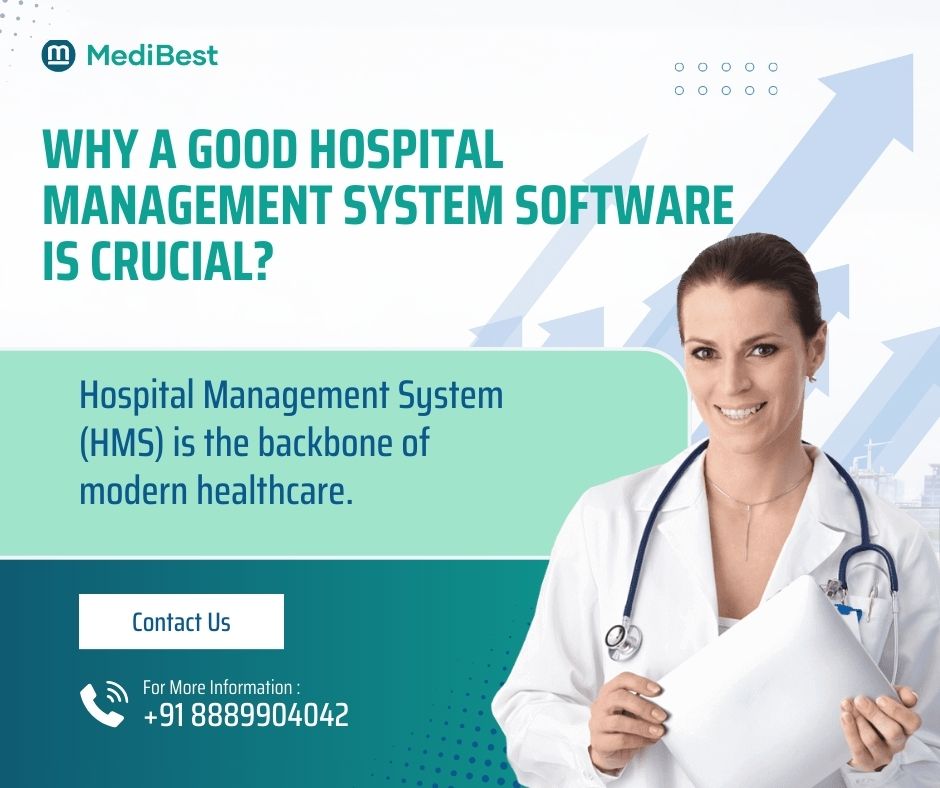HMS is a complete software system that streamlines and optimizes healthcare administration. A hospital’s digital backbone integrates different services into a single platform for efficient and orderly operations.
HMS software coordinates patient data, administrative activities, and other healthcare operations to guarantee a flawless performance. Its many functions improve healthcare delivery efficiency.
The Importance Of An Efficient HMS In Healthcare
An efficient HMS is crucial in healthcare. Medical facilities benefit from it’s technological pulse, improving patient care and streamlining administrative work.
An effective HMS streamlines appointment scheduling, billing and invoicing, patient data retrieval, and health record digitization. Doing so improves patient care, healthcare providers’ financial efficiency, and time savings.
Core Functionalities of HMS
Patient data management is essential to any successful Hospital Management System (HMS). This involves collecting, arranging, and updating patient data. An improved HMS gives healthcare professionals precise demographic and medical history data. This improves patient care and clinical decision-making.
Strong HMSs schedule appointments efficiently. The patient visit process is streamlined, lowering wait times and improving patient satisfaction. Patients may arrange appointments, and healthcare practitioners manage their calendars using accessible interfaces. This function optimizes healthcare resources and improves patient happiness.
An HMS’s billing and invoicing functions streamline healthcare finances. It assures precise and transparent financial transactions, from service bills to insurance claims. An HMS decreases mistakes, billing inconsistencies, and healthcare institution finances by automating these operations.
EHR digitalization and administration are vital HMS functions. EHRs store patient health data securely and centrally. This covers medical history, diagnosis, drugs, and treatments. EHRs improve patient information accessibility and healthcare system interoperability, promoting continuity of treatment.
Administrative Features
Effective inventory management is essential in Hospital Management Systems (HMS). Tracking, organizing, and replenishing medical supplies, drugs, and equipment is vital to maximizing healthcare resources. Inventory management reduces waste and stockouts, allowing healthcare practitioners to offer timely and uninterrupted treatment.
Adequate staff and user management via an advanced HMS helps a healthcare facility run smoothly. Staff members have varying rights depending on their roles using this administrative function. This improves data security and simplifies workflow, enabling healthcare professionals to provide patient care effectively while ensuring confidentiality and compliance.
Reporting and analytics are essential HMS administrative aspects in data driven healthcare. Data helps healthcare managers make choices that affect patient care and efficiency. Comprehensive reporting and analytics tools reveal KPIs, resource consumption, and patient outcomes. This helps with strategic planning and allows healthcare providers to enhance their services to meet changing healthcare requirements.
Integration and Interoperability
Hospital Management Systems (HMS) excel by integrating with diagnostic labs and imaging services. It streamlines the communication of vital medical data, including test findings and imaging reports. By removing administrative and diagnostic silos, an integrated HMS improves cooperation, diagnostic speed, and healthcare delivery efficiency.
Interoperability is essential to modern HMS design. Ensure seamless communication with other healthcare systems for holistic patient care. Interoperability ensures patient data is accessible, safe, and consistent across varied healthcare contexts by exchanging data with external providers or regional health information exchanges. Interconnectedness improves healthcare via continuity, redundancy reduction, and efficacy.
Benefits and Future Trends
Every Hospital Management System (HMS) prioritizes patient care. Advances in HMS digitize and centralize patient data, streamline appointment procedures, and ensure proper invoicing, resulting in unmatched care. Improved diagnoses, individualized treatment approaches, and a better patient experience represent patient-centric healthcare.
In addition to enhancing patient care, an HMS optimizes hospital operations. An HMS saves time and money via inventory management, workflow reduction, and financial transparency. The institution profits financially, and healthcare professionals may devote more time and resources to patient care, creating a more productive and patient-focused atmosphere.
Telemedicine integration becomes a key HMS trend as healthcare advances. An HMS effortlessly integrates telehealth to meet patient and provider requirements. This interface allows remote consultations, virtual monitoring, and continuity of treatment outside of hospitals. Telemedicine at an HMS puts healthcare facilities at the forefront of innovation, making services accessible and efficient in the digital era.
Conclusion
A robust Hospital Management System (HMS) weaves efficiency, patient – centric care, and flexibility. The advantages of patient information management and telemedicine integration are huge. Use an advanced HMS to optimize hospital operations and improve patient outcomes. Medibest is your path to advanced healthcare Management. It is a future ready healthcare solution, and its advanced HMS technology elevates your healthcare facility.


